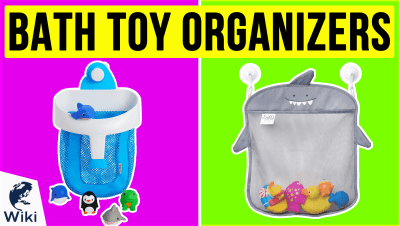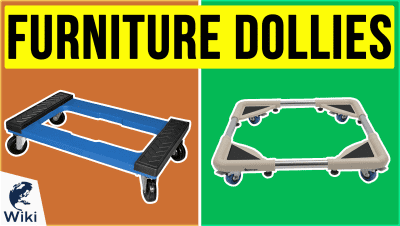5 Organizations That Support And Advocate For Muslim Americans
In order to be free to pursue happiness just like any other Americans, those of the Muslim faith need dedicated individuals and institutions looking out for them. These organizations all take different tracks toward equality by working within the community to fight discrimination, educate the public, and provide essential services. This video was made with Ezvid Wikimaker.
5 Vital Muslim-American Organizations
| Name | Headquarters | Purpose |
|---|---|---|
| Muslim Advocates | Washington, D.C. | Provides representation in the courts, the policy-making process, and in the public conversation so all people can live free from discrimination |
| ACCESS | Dearborn, MI | The largest Arab-American community nonprofit in the United States, ACCESS empowers communities to improve their economic, social and cultural well-being in areas such as employment, health care, and education |
| Institute for Social Policy and Understanding | Dearborn, MI and Washington, D.C. | Provides objective research and education about American Muslims to support well-informed dialogue and decision-making and equip those working toward full and equitable inclusion with solution-seeking research |
| Inner-City Muslim Action Network | Chicago, IL | Fosters health, wellness and healing in the inner-city by organizing for social change, cultivating the arts, and operating a holistic health center to address a spectrum of structural and systemic injustices impeding a dignified quality of life for people in marginalized communities |
| Pars Equality Center | Menlo Park, CA | A community-based social and legal services organization, Pars works to catalyze social, civic and economic integration of immigrants from Persian-speaking and other countries into American society |
4 Data-Driven Ways to Combat Islamophobia From The ISPU
Facts About Islam In America
- As of 2015, there were roughly 1.8 billion Muslims worldwide, about 24% of the total population
- By 2050, the number of Muslims worldwide is expected to equal the number of Christians
- There are between 3 and 4 million Muslims in the U.S., less than 2% of the population
- 41% of U.S. adults said they believe Islam encourages violence more than other faiths
- 92% of U.S. Muslims say they are proud to be American
- 55% say Americans are generally friendly to Muslims
- 53% of Jewish people said they had a favorable opinion of Muslims, compared to 39% of Catholics and 20% of white Evangelicals
- Jewish-Americans are also the most likely group to personally know an American Muslim (76%), compared to 53% of the general public
- 12% of Muslims said their religion should be a source of American law, compared to 5% of Catholics, 8% of Jews, 17% of Protestants and Evangelicals, and 9% of the general population
ACCESS Presents its 2019 Arab Americans of the Year
In Depth
Although Muslims from various backgrounds make up an important and growing part of the cultural fabric of the United States, Muslim Americans have unfortunately faced an increasing number of challenges, from discrimination and negative portrayals across the media to growing numbers of hate crimes and bias related incidents. Fortunately, a number of advocacy groups have stepped up to support Muslims in the U.S. and to fight islamophobia wherever it arises. In no particular order, here are 5 influential groups that provide resources and champion Muslim American advancement.
Coming in at #1 on our list is Muslim Advocates, a national civil rights organization that works in the courts, halls of power, and in communities to halt bigotry in the US. Founded in 2005 by a group of Muslim advocates in the aftermath of the passage of the Patriot Act, which led to widespread surveillance and discrimination, M.A. charted the path for a national civil rights group to take on any civil rights struggle facing the community.
Along with having led the legal resistance to the Muslim Ban executive order in the courts and media, M.A. is also involved in actions surrounding religious freedom, law enforcement bias, discrimination, corporate accountability, and bigotry. Since hate crimes against American Muslims have also become frighteningly common, the organization is involved in tracking and monitoring incidents, studying trends, and seeking justice for victims. You can take action by signing a petition or making a donation through the organization's website.
Along with having led the legal resistance to the Muslim Ban executive order in the courts and media, M.A. is also involved in actions surrounding religious freedom, law enforcement bias, discrimination, corporate accountability, and bigotry.
At #2 we have the Arab Community Center for Economic and Social Services, or ACCESS, which is the largest Arab American community nonprofit in the United States. The agency is dedicated to community-building, with a focus on service to those in need. Since its founding in 1971 by a group of volunteers helping Dearborn Michigan's Arab immigrant population adapt to life in the U.S., ACCESS has grown into eleven locations and more than 120 programs serving the diverse population of the Detroit metropolitan area.
ACCESS boasts a Community Health and Research Center whose mission is to provide public health programs and research opportunities that focus on the needs of Arab Americans locally and nationally, while providing medical, mental health, and environmental services. ACCESS also has programs ranging from education and employment services, to youth and support initiatives for lower income individuals. You can support the organization by volunteering or making a donation.
Next at #3, we have the Institute for Social Policy and Understanding, a nonpartisan, nonprofit organization that supports Muslim Americans through research that dispels myths and discovers areas for community development. The I.S.P.U. works toward an America where Muslims are thriving and equal participants by conducting objective, solution-seeking research that builds understanding, protects rights, and supports community development efforts, then shares this information in easily digestible ways with the general public, policymakers, media professionals, community leaders, and others.
The I.S.P.U. works toward an America where Muslims are thriving and equal participants by conducting objective, solution-seeking research that builds understanding, protects rights, and supports community development efforts, then shares this information in easily digestible ways with the general public, policymakers, media professionals, community leaders, and others.
As a go-to source for anyone seeking information about Muslims in America and issues that impact them, the I.S.P.U. has conducted national polls to compare attitudes across religious groups, used case study analysis to stimulate and support mosques and community centers to meet the needs of their diverse congregants, and created a bibliography of books that can be used as a resource for education on Muslims and Islam in the United States. You can support the institute's efforts by making a donation through its website.
Coming in at #4 is the Inner-City Muslim Action Network, known as IMAN, a community organization that fosters health, wellness, and healing in the inner-city by organizing for social change, cultivating the arts, and operating a holistic health center. Since its founding in 1997, IMAN has grown steadily as a group deeply invested in the social issues affecting communities of color living on Chicago's South Side and in 2016 opened its second office in Atlanta to continue expanding its mission.
Although IMAN engages in multiple campaigns involving organizing and advocacy, mental and community health, and arts and culture, its Green Reentry program has been a cornerstone of the organization since its founding. Green Reentry provides transitional housing, life education skills, and sustainable construction training to formerly incarcerated individuals and high risk youth in both Chicago and Atlanta. Many of the transitional homes established by IMAN have become symbols of pride and kickstarted community development in otherwise neglected neighborhoods. To help the organization, consider making a donation or signing up as a volunteer.
Although IMAN engages in multiple campaigns involving organizing and advocacy, mental and community health, and arts and culture, its Green Reentry program has been a cornerstone of the organization since its founding.
Rounding off our list at #5 is the Pars Equality Center, a community based social and legal services organization dedicated to helping Iranian-American and other Persian speaking communities realize their full potential as informed, self reliant, and responsible members of American society. The center achieves its mission primarily by providing extensive social and legal services for recent immigrants, with a multilingual staff including case managers and attorneys.
The P.E.C.'s legal services include free or low-cost legal immigration services to qualified individuals, covering everything from Citizenship and Naturalization Applications to more complex immigration relief, such as Humanitarian Reinstatements. The organization's efforts have also included bringing lawsuits at the national level challenging discriminatory policies, as in the case of the Muslim or Travel Ban. The center also features cultural events and youth programs, and you can pledge your support by making a donation through the P.E.C.'s website.


















